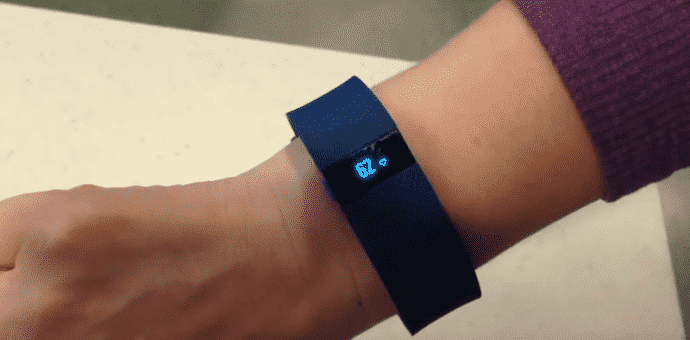Doctors Used This Dude’s FitBit Data To Diagnose His Life-Threatening Condition
A patient’s personal activity tracker and smartphone enabled the emergency physicians to identify the time his heart arrhythmia started after looking at the data collected by his Fitbit Charge HR, which in turn helped them to treat his new-onset atrial fibrillation with electrical cardioversion and discharge him home. It’s the first time in history that a fitness tracker/smartphone system has been used to assist in medical decision-making.
This was the experience of an anonymous 42-year-old man from New Jersey who was the subject of a recent case study in the Annals of Emergency Medicine. The man, who had a history of seizures was brought to the ER at Our Lady of Lourdes Medical Center in New Jersey following an episode.
When the patient arrived at Our Lady of Lourdes Medical Center in Camden, the clinical team noticed he had an atrial fibrillation (an irregular, often sped-up heart rate that can disrupt blood flow), but they weren’t sure if it was chronic.
Emergency department staff accessed the smartphone application connected with his activity tracker and discovered the onset time for his atrial fibrillation was 3 hours prior to coming to the emergency department. Emergency department staff interrogated the smartphone app again after cardioverting the sedated patient, which exactly recorded the change in heart rate consistent with a rhythm change from atrial fibrillation to normal rhythm. The patient was discharged home with instructions to follow up with outpatient cardiology.
“Not all activity trackers measure heart rates, but this is the function of most value to medical providers,” said Dr. Alfred Sacchetti of Our Lady of Lourdes, one of the authors of the case study, said in a statement. “Dizziness with a heart rate of 180 would be approached very differently from the same complaint with a heart rate of 30. At present, activity trackers are not considered approved medical devices and use of their information to make medical decisions is at the clinician’s own discretion. However, the increased use of these devices has the potential to provide emergency physicians with objective clinical information prior to the patient’s arrival at the emergency department.”
Here’s what the clinical team wrote in their ensuing report, which now appears in the Annals of Emergency Medicine:
During the patient’s examination, it was noted that he was wearing a wrist activity tracker (Fitbit Charge HR, Fitbit, San Francisco, CA), which was synchronized with an application on the patient’s smartphone, recording his pulse rate as part of a fitness program. The application was accessed on the patient’s smartphone and revealed a baseline pulse rate between 70 and 80 beats/min, with an immediate persistent increase to a range of 140 to 160 bpm at the approximate time of the patient’s seizure. The pulse rate remained elevated until administration of the diltiazem in the field.
The patient’s Fitbit confirmed that the atrial fibrillation was in fact triggered by the seizure, which meant they could go ahead and perform the electrocardioversion.
While fitness gadgets currently are not an approved medical device and can’t take the place of approved medical devices, this single incident shows the great potential that these devices have to inform medical staff of serious problems. While it may still be early days for these devices, they are already turning out to be life savers. Whether these devices will be expertly catered to medical needs and beyond, only time will tell.
